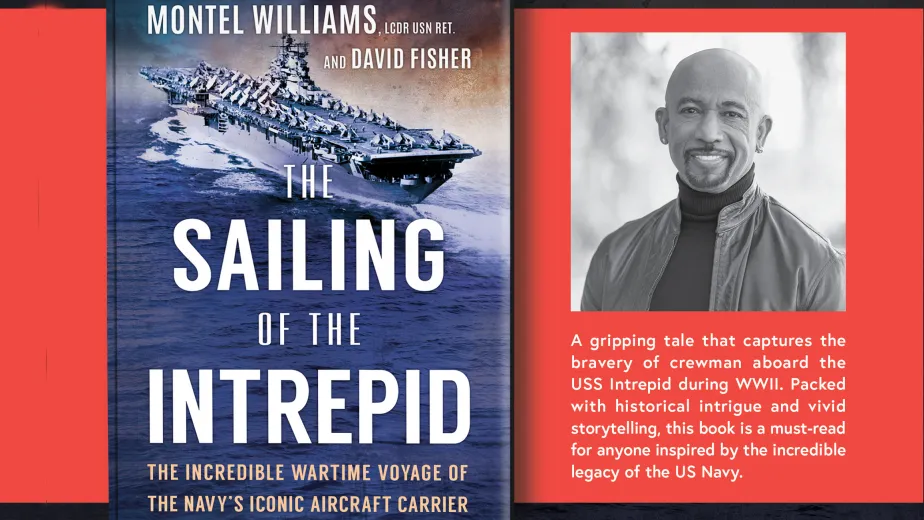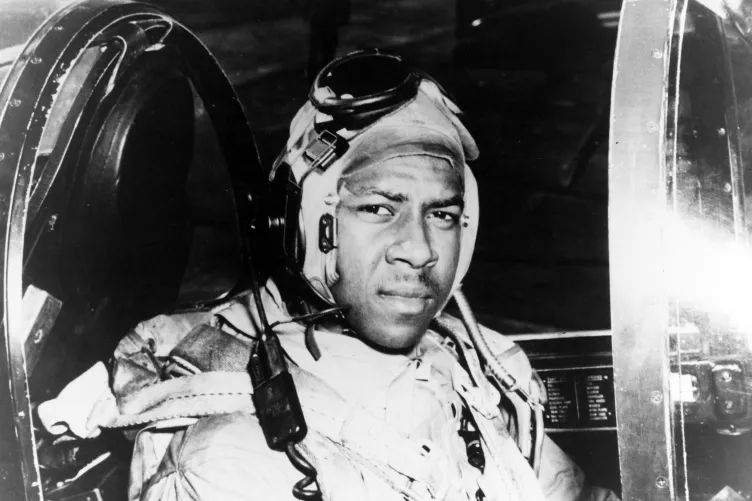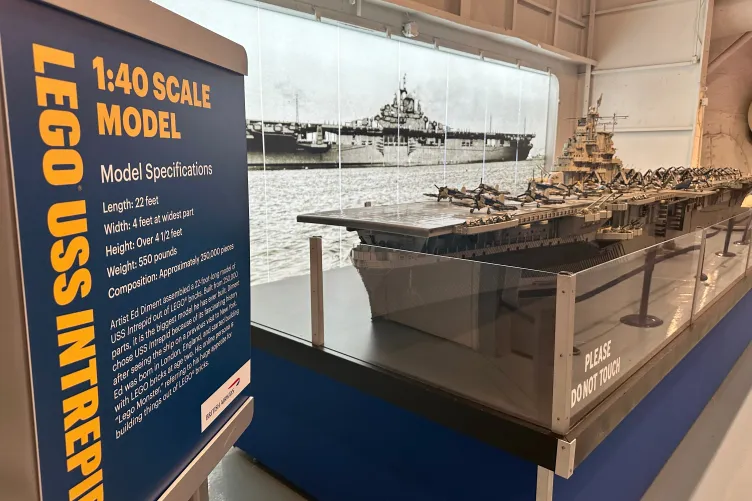
You may recognize me as the Emmy-Award winning host of The Montel Williams Show, or as the current host of Military Makeover. I’m a nearly 22 year veteran of the Navy and Marine Corps, and the author of THE SAILING OF THE INTREPID: The Incredible Wartime Voyage of the Navy’s Iconic Aircraft Carrier (On Sale: May 20, 2025). As a lifelong supporter and fan of the Intrepid Museum, I’m excited to share an exclusive early sneak-peak of my book with you!
There’s something about walking the decks of an iconic ship like USS Intrepid that stirs the imagination and reminds us of the daring spirit that has shaped our world. That’s why I’m so excited to bring this exclusive excerpt to you, right here on the museum’s blog.
If you want to learn more about USS Intrepid, my book is available for preorder now from the Intrepid Museum bookstore. I hope you enjoy this edge-of-your-seat moment from an unforgettable event in American naval history!
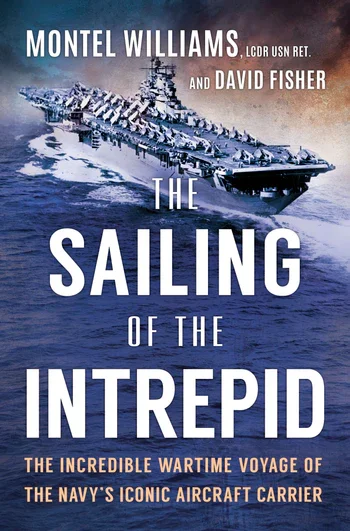 Piracy had long plagued Mediterranean waters. For centuries, pirates from the Barbary States of Morocco, Tunis, Algiers, and Tripoli terrorized merchant vessels, demanding tribute, taking sailors hostage, and selling men and women into lifelong slavery...
Piracy had long plagued Mediterranean waters. For centuries, pirates from the Barbary States of Morocco, Tunis, Algiers, and Tripoli terrorized merchant vessels, demanding tribute, taking sailors hostage, and selling men and women into lifelong slavery...
On the moonlit night of February 16, 1804, the Turkish-rigged ketch Intrepid rode a gentle breeze into heavily guarded Tripoli Harbor, sailing gracefully under the suspicious eyes of shore batteries and gunboats. More than one hundred of the pasha’s cannons were primed and aimed at the small ship, protecting the captured American warship Philadelphia, a frigate taken months earlier by Barbary pirates.
Several ragtag crewmen were visible on deck, working the small merchant ship into the harbor. Far below the surface, however, another seventy-five men crouched, armed with swords, knives, axes, and pikes. They maintained absolute silence, every muscle taut, every breath measured. Above them, a brief gust rippled Intrepid’s two canvas sails. For 3,000 years, that familiar sound had brought sailors comfort, a melody tied to centuries of seafaring. Tonight, the sound underscored the tension. Within minutes, these men would launch one of the most audacious surprise attacks in naval history, carrying not only their weapons but the prestige and economic future of the young American nation.
Their mission was as simple as it was deadly. Find the Philadelphia and destroy her. Set her ablaze until she was reduced to charred timbers. If they succeeded, they would return home as heroes. If they failed, their bones would rest on the ocean floor.
Piracy had long plagued Mediterranean waters. For centuries, pirates from the Barbary States of Morocco, Tunis, Algiers, and Tripoli terrorized merchant vessels, demanding tribute, taking sailors hostage, and selling men and women into lifelong slavery. Before the American Revolution, colonial ships had sailed under the protection of the British flag. Independence stripped them of this safety net. Without a solution to the threat, American trade across these historic waterways would come to a standstill. It was this peril that had driven the United States to create its Navy in 1794. “Our trade… to the Mediterranean is annihilated unless we do something decisive,” Thomas Jefferson had warned.
By 1801, conflicts between Tripoli and the fledgling United States reached a breaking point. Frustrated with failed negotiations, Yusuf Qaramanli, the pasha of Tripoli, formally declared war on the U.S. The ongoing confrontation erupted three years later with Tripoli capturing the American frigate Philadelphia in October 1803. The ship, which had run aground on an uncharted reef, was hauled into Tripoli Harbor and anchored a mere one hundred yards offshore. The vessel’s 307-man crew was taken hostage, leaving Philadelphia as a prize, soon renamed Gift of Allah. This humiliating capture symbolized American weakness and armed Tripoli with a ship that posed a significant threat to international merchant vessels.
But America was not willing to leave the ship in enemy hands. Commodore Edward Preble, commanding the Mediterranean Squadron, declared, “I shall hazard much… it will undoubtedly cost us many lives, but it must be done.” Destroying Philadelphia presented an enormous challenge. The ship sat protected by the guns of Tripoli’s harbor and the watchful eyes of coastal defenses. Sending an American warship on the mission was out of the question; even from a distance, the vessel would immediately be identified and attacked.
Instead, Intrepid would be their disguise. The chosen vessel was a Tripolitan bomb ketch, originally called Mastico. Barely large enough to carry a raiding party, it had been recently captured by Preble’s squadron. Built in France in 1798 for Napoleon’s Egyptian campaign, it was designed to resemble a mundane cargo vessel. This anonymity, along with its North African appearance, would provide the Americans with a tenuous but critical advantage.
Under Captain Stephen Decatur’s command, the plan moved swiftly forward. Everything depended on precise timing, calculated silence, and a deep well of courage. If the crew of Intrepid failed, it would not be for lack of resolve.
“You know the risks,” Decatur had told his men. “Know also this—whoever volunteers for this mission defies the odds of fortune. But if we succeed, we’ll write a story that a thousand nights will tell.”
That night, as the ship slipped closer to its target, the silence on board was all-consuming. Even the slap of water on the hull sounded too loud. Somewhere above, the stars hung in the Mediterranean sky, witness to the American vessel’s brave gamble beneath them. Ahead lay the Philadelphia, bristling with danger but within reach.
“Stand fast,” Decatur whispered to his men. “This night belongs to us.”
Excerpted from The Sailing of the Intrepid:The Incredible Wartime Voyage of the Navy’s Iconic Aircraft Carrier. Copyright © 2025 by Montel Williams. Published by Hanover Square Press, an imprint of Harlequin Trade Publishing.
Purchase Your Copy of THE SAILING OF THE INTREPID. And join Montel Williams for an Author Talk and book signing during Fleet Week! Learn more about the event here.
HarperCollins | Amazon | B&N | Bookshop | BAM

Want to visit the museum? We would love to have you! Find out all about our offerings here and plan your trip today.
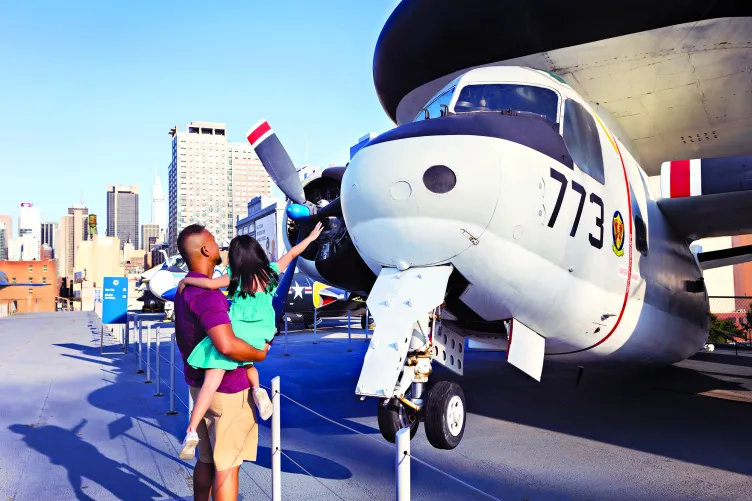
If you join our membership program you can visit the museum any time! Plus enjoy many membership perks at a discounted rate.


